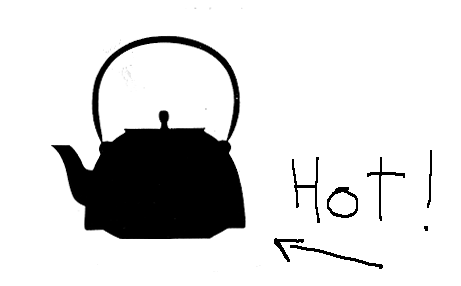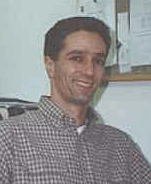« Gordon Bower | Main | How can somebody make a decision without all the facts? Well, there's actually no other way. »
December 01, 2004
Is reading about the kettle the same as touching it?
DECISIONS FROM EXPERIENCE AND THE EFECTS OF RARE EVENTS IN RISKY CHOICE

Studies of risky choice almost always examaine decisions made from descriptive sources of information, for example pie charts and frequency distributions. Nonetheless, people in the real world usually make decisions without descriptions and rely on personal experience. The studies described here indicate a discrepancy in choice behavior concerning specific rare events. Why do decisions made from descriptions seem to overweight rare events and decisions made from experience seem to underweight them? A recent study by Ralph Hertwig, Greg Barron, Elke Weber and Ido Erev investigates how the manner of information acquisition, whether from a descriptive source or from personal experience, can dramatically influence choice behavior.
Abstract:
When people have access to information sources such as newspaper weather forecasts, drug-package inserts, and mutual-fund brochures, all of which provide convenient descriptions of risky prospects, they can make decisions from description. When people must decide whether to back up their computer's hard drive, cross a busy street, or go out on a date, however, they typically do not have any summary description of the possible outcomes or their likelihoods. For such decisions, people can call only on their own encounters with such prospects, making decisions from experience. Decisions from experience and decisions from description can lead to dramatically different choice behavior. In the case of decisions from description, people make choices as if they overweight the probability of rare events, as described by prospect theory. We found that in the case of decisions from experience, in contrast, people make choices as if they underweight the probability of rare events, and we explored the impact of two possible causes of this underweighting-reliance on relatively small samples of information and overweighting of recently sampled information. We conclude with a call for two different theories of risky choice.
Quotes:
"Studies of human risky choice almost exclusively examine decisions from description. In a recent meta-analysis of all studies involving decisions between a two-outcome risky prospect and a sure thing (with equal expected value), Weber et al. (2004) found that all 226 choice situations called for decisions from description."
"Respondents in the experience and description groups faced structurally identical problems. Yet their choices were dramatically different. Differences in choices were consistent with the assumption that in decisions from experience, rare events had less impact than they deserved on the basis of objective probability (and in decisions from description, rare events had more impact than they deserved). Moreover, the underweighting of rare events in decisions from experience appears to be robust across experimental paradigms:"
"Reliance on small samples of experience not only plays a key role in decisions from experience but also contributes to perception of the world as less variable than it actually is... Although small samples have the result that decision makers explicitly and hence presumably also implicitly underestimate the probability of rare events, underweighting of rare events is likely to emerge in decisions from experience even if people can provide accurate explicit estimates of the probabilities."
"In decisions from experience, respondents need to update their impression of the options' attractiveness by combining newly sampled outcomes with their knowledge from previous draws. Such updating can give rise to recency effects (e.g., Hogarth & Einhorn, 1992), that is, to judgments in which recently sampled outcomes receive greater weight than earlier sampled ones."
"Not only probabilities and outcomes but many kinds of information can be learned through experience or description. Base rates, distributional information, and degrees of causal strength are a few examples. Thus, one might expect the way in which information is learned to influence cognitive processes in many domains. Indeed, in research on Bayesian reasoning, for instance, there is evidence that performance depends on whether base rates are directly experienced or symbolically described"
"In a study of foraging decisions made by bees, Real (1991) observed that "bumblebees under perceive rare events and over perceive common events" (p. 985), when the events are instances of food. To explain why bees' "probability bias" diverges from that observed in humans, real cited, among other factors, the fact that bees' samples from payoff distributions are truncated because of memory constraints."
About the Authors:
Prof. Dr. Ralph Hertwig

Ralph Hertwig is assistant Professor of applied Cognitive Science at the Institute for Psychology in the University of Basel. Hertwig has been a research scientist both in the Center for Adaptive Behavior and Cognition at the Max Planck Institute for Human Development in Berlin and at the MPI for Psychological research in Munich, Germany. In 1996 he Hertwig won the 1996 Heinz Heckhausen Young Scientist Prize of the German Society for Psychology. He recieved his PhD (Dr. rer soc.) Summa Cum Laude in Cognitive Psychology from The University of Konstanz in 1995.
Ralph Hertwig homepage
Greg Barron

Greg Barron is an Assistant Professor in the Negotiations, Organizations, and Markets Unit at the Harvard Business School. He came to HBS in 2003 as the CLER (Computer Lab for Experimental Research) Research Fellow in Business Administration. Greg received his B.A. in Psychology from Haifa University and his Ph.D. in Behavioral Sciences from the Technion, Israel Institute of Technology. Prior to obtaining his Ph.D. he worked at Elbit Systems Ltd. as an HR coordinator and at the Carmel Center for Groups as a certified group facilitator. Greg's primary research interests are in the field of decision making, focusing on the effects of economic incentives on repeated decisions.
Greg Barron Home Page
Elke Weber

Elke Weber is a professor of psychology and Management at Columbia University. She recieved her PhD from Harvard University in 1984. Her research interests include Behavioral models of judgment and decision making under risk and uncertainty. She is also interested in psychologically appropriate ways to measure and model individual and cultural differences in risk taking, specifically in risky financial situations and environmental decision making and policy.
Elke Weber Home Page
Ido Erev

Ido Erev is a member of the William Davidson Faculty of Industrial Engineering and Management as a professor at Technion, Haifa, Israel. His primary research interests are cognitive psychology, Individual decision making under uncertainty, human judgment and subjective probability, behavioral implications of game theory, social dilemmas and attention control.
Ido Erev Home page
Posted by DSN at December 1, 2004 06:49 PM